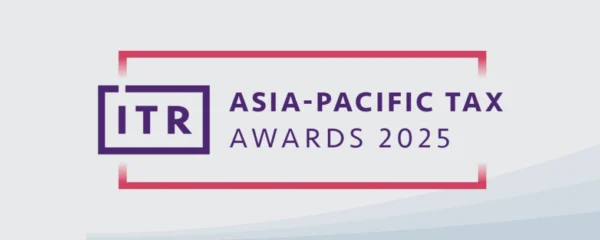In focus series. Bilateral Trade Treaties. Vietnam – USA.
September 7, 2023
This article provides a re-cap of some key policy and protection provisions set out in one of the major bilateral treaties that have been concluded between Vietnam and the United States of America – Agreement “On Trade Relations” (2000).
Why It is Important for Cross-border Business:
- entering into contracts;
- protecting investments;
- resolving disputes.
When considering investment strategy, negotiating a commercial trade contract, or resolving a dispute with a counterparty in a particular jurisdiction, a lot of focus is often given to specific rules or regulations applicable to the relevant industry or issue.
International treaties may provide principles and guidance of more general nature. However, in many countries the provisions of international treaties are given very strong power in the hierarchy of various sources of regulation. For example, in Vietnam, pursuant to Article 6 of the Law “On Treaties”, in cases where a legal document and a treaty to which Vietnam is a party, contain different provisions on the same matter, the provisions of the treaty shall prevail, except for the Constitution.
For this reason, it is important to keep in mind what the international treaties provide, in particular where it may be useful to supplement the analysis made under local laws and regulations.
Agreement Between the United States of America and the Socialist Republic of Vietnam on Trade Relations (Link)
Date: 13 July 2000
Key areas of focus:
- Market Access
- IP
- Trade in services
- Investment
- Transparency
Please note that the summary below focuses on some of the key principles and general rules, and does not cover various specific exemptions that may be in more detail addressed in the Agreement. Reference to a “party” below is intended to cover Vietnam and/or the United States of America, accordingly.
Most Favoured Nations Regime – Products / Services
In relation to products originating in or exported to the territory of the other party to the agreement, with some specific reservations) each party shall accord treatment no less favorable than that accorded to such products originating in or exported to the territory of any third country. This relates to, among others, market entry conditions, customs duties, taxes and quantitative restrictions.
Similarly, each party shall accord to services and service suppliers of the other party treatment no less favorable than that it accords to like services and service suppliers of any other country.
National Treatment – Trade / IP Rights / Services
The Agreement provides that each party shall administer measures affecting trade in a manner which affords meaningful competitive opportunities for products of the other party with respect to domestic competitors. Accordingly, neither party shall impose on the products of the other party imported into its territory, internal taxes or charges of any kind in excess of those applied, directly or indirectly, to like domestic products.
Parties shall ensure that technical regulations and standards are not prepared, adopted or applied with a view to creating obstacles to international trade or to protect domestic production.
Similarly, each party shall accord to nationals of the other party treatment no less favorable than it accords to its own nationals with regard to the acquisition, protection, enjoyment and enforcement of all intellectual property rights.
For the specific sectors (as described in Article 7 of the Agreement), each party shall also accord to services and service suppliers of the other party, in respect of all measures affecting the supply of services, treatment no less favorable than that it accords to its own like services and service suppliers.
Commercial Disputes
The Agreement provides that nationals and companies of either party shall be accorded national treatment with respect to access to all competent courts and administrative bodies in the territory of the other party. They shall not be entitled to claim or enjoy immunity from suit or execution of judgment, proceedings for the recognition and enforcement of arbitral awards, or other liability in the territory of the other party with respect to commercial transactions.
Investments – National and Most Favored Nation Treatment
With respect to the establishment, acquisition, expansion, management, conduct, operation and sale or other disposition of “covered investments”, each party shall accord treatment no less favorable than that it accords, in like situations, to investments in its territory of its own nationals or companies or to investments in its territory of nationals or companies of a third country, whichever is most favorable.
Covered investments include investments of a national or company of a party in the territory of the other party.
Each party shall at all times accord to covered investments fair and equitable treatment and full protection and security, and shall in no case accord treatment less favorable than that required by applicable rules of customary international law. Each party shall in no way impair by unreasonable and discriminatory measures the management, conduct, operation and sale or other disposition of covered investments.
Each party shall ensure that its laws, regulations and administrative procedures of general application that pertain to or affect investments, investment agreements, and investment authorizations are promptly published or otherwise made publicly available.
The Agreement provides for fairly detailed regime for the cases of expropriations. Among other things, the conditions prescribed for expropriations include that they should be for a public purpose, in a non-discriminatory manner, upon payment of prompt, adequate and effective compensation, and in accordance with due process of law and the general principles of treatment provided for in the Agreement.
Compensation shall be equivalent to the fair market value of the expropriated investment immediately before the expropriatory action was taken, be paid without delay and include interest at a commercially reasonable rate from the date of expropriation. It should be fully realizable, and be freely transferable at the prevailing market rate of exchange on the date of expropriation.
Investment Incentives under the Legal Framework in Vietnam
The above principles have been subject to deep integration into Vietnam’s domestic investment law specifically in the provisions concerning the market entry of foreign investors.
Vietnam has developed a very broad framework for foreign investors, that includes:
- Preferential rates for corporate income tax (CIT)
- Exemptions from import customs duties
- Exemptions from VAT on imported goods
- Benefits in Export Processing Zones
- Holidays/reductions on land rental/use fees
- Favorable dividends taxation
- Various employee benefits, including certain exemptions from personal income tax (PIT) and deductibility for CIT.
Please refer to the comprehensive Vietnam Investment Incentives Guide here.
Recent Publications
Legal UpdateTax Update
Legal Update
Recent News

Andersen in Cambodia and Vietnam shortlisted for the 2025 ITR Asia-Pacific Tax Awards
Read More »
Andersen Vietnam Publishes Its Market Entry Guide for Vietnam Prepared in Collaboration With the Investment Promotion Agency of Da Nang
Read More »
Andersen in Cambodia at the Project Finance Workshop for the securities regulator!
Read More »



